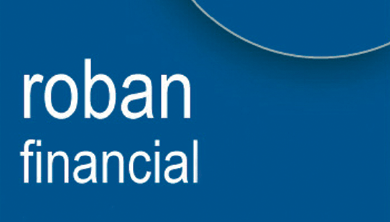Are you co-habiting? If so, you need to be aware of the Inheritance tax implications for unmarried couples in relation to the property and/or life assurance policy either or both of you hold.
If as an co-habiting couple, you have a property and/or a life assurance policy which will be passed to the surviving partner on death, then you need to be aware and plan for the tax implications of the receipt of the property and/or life assurance policy.
The stranger threshold for Inheritance Tax is €16,250 (as of 12th October 2016). Inheritances in excess of this are subject to tax at 33%. So if the houses passes to the cohabiting partner, he/she could have a substantial tax bill.
The property does not automatically pass to the survivor – this will depend on the type of joint ownership which might apply; either a joint tenancy or tenancy in common.
If the property is owned as a joint tenacy, the presumption is that the property passes to the surviving owner.
If the property is owned under a tenancy in common, the law provides that each of the owners holds a separate distinct share and therefore the surviving owner does not automatically inherit the share of the joint owner who has died.
We always recommend that our clients have a Will in place.
If there is no Will in place, in the above instance, the property would pass to the ‘next of kin’; their parents, brothers or sisters.
In relation to inheritance tax, the Finance Act 2000 introduced a complete exemption from Inheritance Tax on the value of a dwelling, provided the person satisfied conditions that the property was and continues to be their family home.
To qualify for the exemption the person who inherits the home must:
* Have occupied the house as their sole or main dwelling for 3 years prior to the date of inheritance
* At the date of inheritance does not hold an interest in any other dwelling house
* Continue to occupy the house as their sole or main residence for 6 years after the date of inheritance
If the above conditions are satisfied, that a couple who have been living in the house, regardless of which of them own the house, paid the mortgage or the mortgage protection policy, there will be no Inheritance tax liability.
However if the above conditions are not met, there could be significant tax implications for the survivor.
As above if as a co-habiting couple, either of you holds a life assurance plan, and the proceeds pass to the surviving partner, there are possibly significant tax implications. This would not be the case if you were a married couple.
Royal London (formerly Caledonian Life) carried out research recently (2015) which ultimately showed that many co-habiting couples are under the false assumption that if either partner were to pass away that the surviving partner would be automatically entitled to the proceeds of the deceased’s life cover policy, tax free.
However this is not the case; if as the surviving partner, you receive the proceeds of a life policy paid for out of the bank account of your deceased partner, you may be faced with an onerous tax bill.
For example on a life policy of €400,000, the surviving partner could be liable for an inheritance tax bill of €126,637.50 if they have not paid for the life cover premiums themselves. This is due to the fact that as the couple, who are not married, are treated as strangers under tax lax, where the exemption threshold is currently €16,250. This means that any inheritance over the sum of €16,250 is subject to tax at a rate of 33%.
In the event of a claim, Revenue will look for evidence to determine who has been paying the premiums. If it is clear that the premiums are paid from a joint account (into which contributions are credited by both parties), then it is deemed that 50% of the proceeds have been inherited, resulting in a lessor (but still potentially onerous tax bill).
The simple and legitimate solution in this case in order to avoid such a tax liability, is that each partner pays for each others’ life assurance plan, from their own bank account and income. Therefore they are deemed to own that plan and cannot be liable to inheritance tax.
The above is an example of the importance of professional advice in order to ensure your affairs are in order and whilst putting life cover in place is a responsible and often necessary thing to do, it is also important that professional advice is received in order to ensure the correct structure is in place and potential tax implications are foreseen and dealt with.
During our factfinding process we always cover these issues and advise accordingly.
If this is an area which concerns you, please contact us for personalised advice in this respect.


